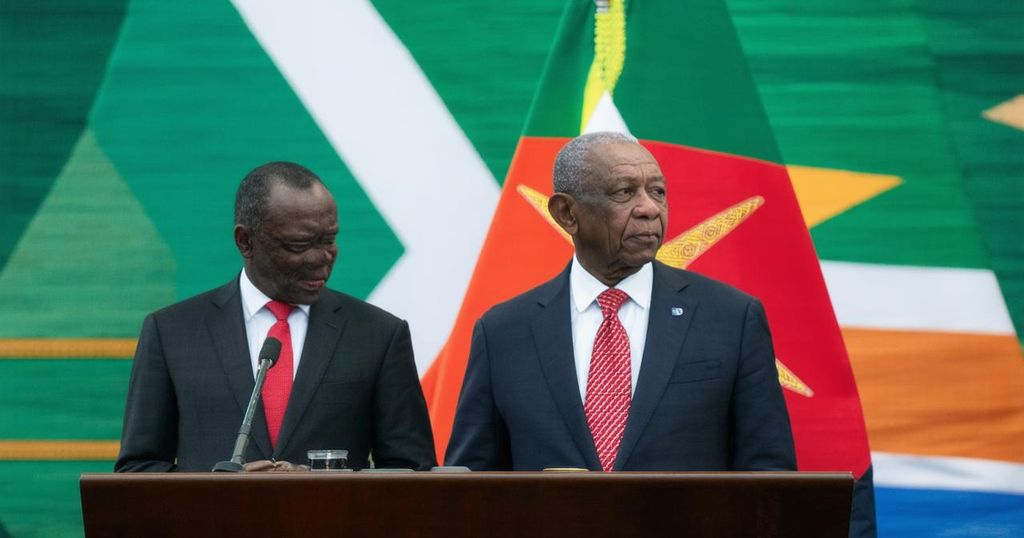South Africa Firmly Opposes Morocco’s Entry into BRICS Amidst Ongoing Summit

The 16th BRICS summit in Kazan, Russia, features South Africa’s staunch opposition to Morocco’s potential membership, citing concerns about influence dilution. The longstanding tension over Western Sahara plays a significant role in South Africa’s position. Conversely, China extends invitations to Morocco for participation in BRICS dialogues, highlighting contrasting approaches within the group. The summit is crucial for discussing further expansion as numerous countries express interest in joining BRICS.
The 16th BRICS summit commenced on October 22 in Kazan, Russia, emphasizing the influential economic bloc’s discussions surrounding expansion. Notably, South Africa has articulated its firm opposition to Morocco’s proposed membership, asserting that such an inclusion would dilute its influence within the group. South African officials, who requested anonymity due to the sensitive nature of the issue, firmly articulated their stance against both Morocco and Nigeria’s entry into the BRICS alliance. The complex relationship between South Africa and Morocco is further complicated by the ongoing dispute over Western Sahara. In April of the previous year, South Africa successfully placed the Western Sahara issue on the agenda for a deputy foreign ministers’ meeting within BRICS. Tensions escalated when South Africa invited Brahim Ghali, leader of the Polisario Front, to a BRICS/Africa meeting, just after Morocco declined a South African invitation, citing diplomatic strains. Morocco contended that South Africa’s invitation was not backed by the broader BRICS consensus or the African Union and denied applying for BRICS membership. The BRICS group, established in 2009, has recently welcomed new members, including Iran, the United Arab Emirates, Ethiopia, and Egypt as of early 2024, thereby enhancing its economic significance within the global framework. Saudi Arabia’s potential membership remains pending a final decision. Russia, presiding as BRICS chair, seeks to reinforce its international stature through this summit, despite ongoing geopolitical challenges due to the war in Ukraine. Notably, Kremlin foreign policy aide Yuri Ushakov reported that the summit gathers 36 national delegations alongside six international organizations, marking a significant diplomatic assembly in Russia since the Ukraine invasion. Contrarily, China’s approach appears to differ, as it extended an invitation to Morocco for the BRICS Forum 2024 focused on new industrial revolution partnerships in September. This invitation indicates a willingness from China to engage Morocco in discussions on economic collaboration, highlighting the intricate dynamics within the BRICS alliance. As the summit unfolds, the agenda prominently features discussions about the future potential for BRICS expansion, particularly as more nations express interest in joining the bloc, including Malaysia, Thailand, and Türkiye. Balancing the various geopolitical interests while fostering economic cooperation remains an imperative challenge for the alliance.
The BRICS group, consisting of Brazil, Russia, India, China, and South Africa, has increasingly focused on expansion to enhance its global influence and economic collaboration. As the bloc convened in Kazan, Russia, for its 16th summit, South Africa’s adamant position against Morocco’s entry reflects broader regional politics and longstanding tensions over the Western Sahara conflict. This situation is further complicated by China’s more inclusive stance towards Morocco, which illustrates the diverse geopolitical interests at play within the BRICS framework. The group’s recent admissions of new member states have led to heightened discussions concerning membership criteria and the implications of further expansion—issues that will significantly shape the alliance’s future.
In conclusion, the ongoing dynamics within the BRICS alliance reveal a multifaceted dialogue surrounding membership expansion, notably with South Africa firmly opposing Morocco’s inclusion. The underlying tensions stemming from the Western Sahara issue underscore regional complexities, while China’s openness towards Morocco suggests divergent strategies within the bloc. As BRICS faces increasing interest from various nations for membership, navigating these competing interests while promoting unity and economic collaboration remains a critical challenge moving forward.
Original Source: www.moroccoworldnews.com








